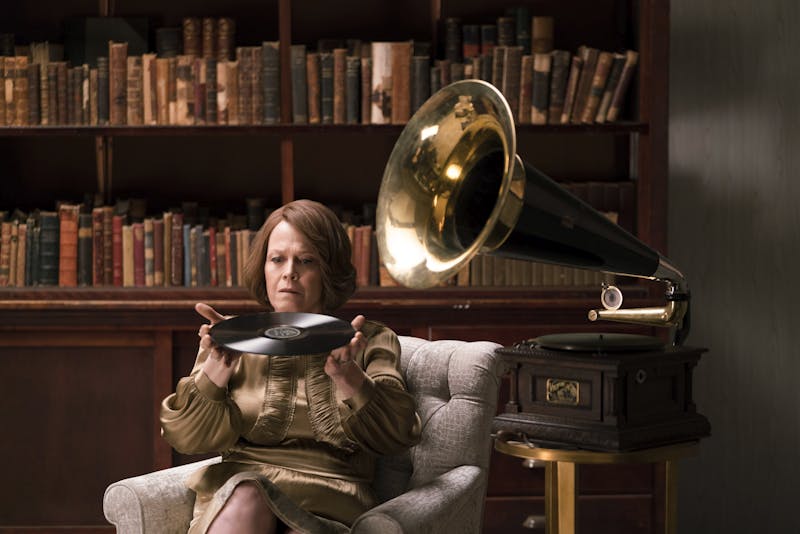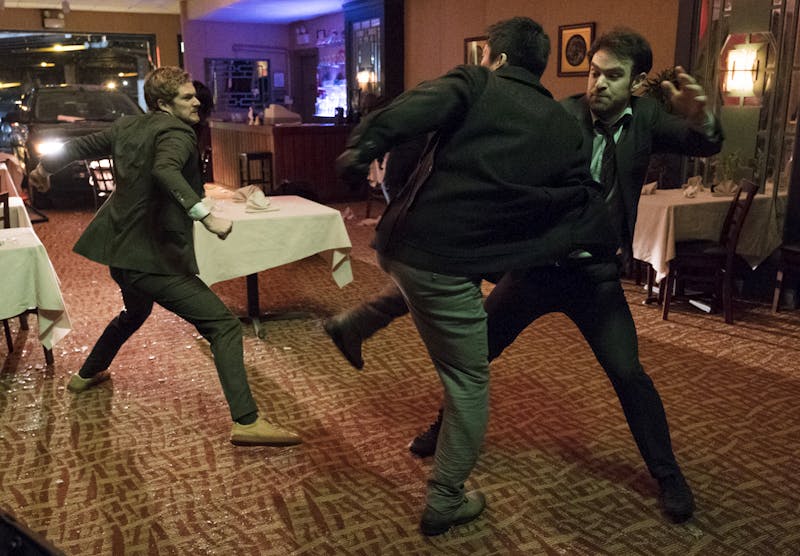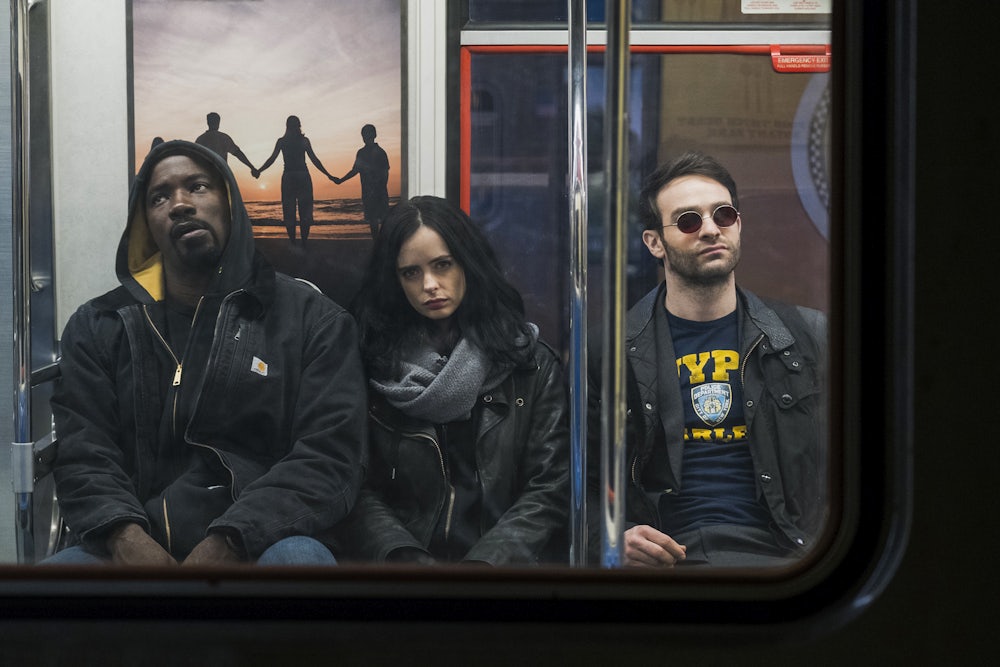Even the most devoted nerd knows that superheroes are vulnerable to corniness, no matter their other strengths. So, a little sense of humor in a TV adaptation goes a long way. Marvel’s newest Netflix show, The Defenders, brings together four series—Jessica Jones, Luke Cage, Daredevil, and Iron Fist—into a motley palimpsest of butt-kicking misfits. The potential was enormous, and in some places the show succeeds. But by placing Danny Rand, a.k.a. Iron Fist, at its center, The Defenders ends up sidelining its most charismatic characters in favor of the humorless, the corny, and the dull.
The first episode opens with Danny Rand (Finn Jones)—the Iron Fist himself—fighting alongside his sidekick Colleen Wing (Jessica Henwick) as they search for the truth about what the evil gang known as The Hand are up to. This pair says things to each other like, “I can’t hide any more,” while staring blankly into each other’s eyes. Their hunt for The Hand leads them to New York, and in turn to the acquaintance of Luke Cage (still working to keep Harlem safe), Jessica Jones (still drunk, still mean), and Matt Murdock a.k.a. Daredevil (still retired from the superhero biz but practicing law on excellent form).
Only Jessica Jones and Luke Cage have a real history together, and such they’re the only two that make sense as friends. The rest of the characters eat long swaths of screentime as the show’s writers find ways to force them into some kind of dialogue with one another.
For example, early in their acquaintance, Luke Cage clashes with the super-rich Danny Rand. Cage is black and Rand is white; Cage cares for the disenfranchised of New York City while Rand zooms about in helicopters with an immobile look on his face. Their conversation quickly becomes one about race and class. Danny Rand concedes that he is very rich but claims, “That doesn’t define me.” Cage is worried about a young black man who has been roped into a cleanup job for the bad guys. “You’re not thinking about the bigger picture,” Rand says. “I know privilege when I see it,” says Cage.
It’s unbelievably corny stuff, but in one of these men’s mouths the lines make sense. It’s very strange to watch a well-realized character like Luke Cage talking to a crude sketch of a man; it’s like watching a game of tennis between Serena Williams and Pacman. Mike Colter as Luke Cage is a magnificent screen presence, and the character is almost used as a relief valve for the stagnation of the rest of the show. Whenever Cage shows up, The Defenders gets a break from the tense-neck aggression of Iron Fist (the first time Cage walks on screen, it’s to the strains of Mos Def’s “Sunshine”).
Other characters recurring from Luke Cage include Rosario Dawson as Claire Temple and Simone Missick as the Harlem cop Misty Knight (key line: “Shit is not okay,” barked down a cellphone). That these two Luke Cage holdovers so completely outshine central characters on The Defenders is testament to the sheer quality of that show as compared to the others.

Krysten Ritter takes the silver medal as the perennially drunk and acerbic Jessica Jones. Other excellent actors are shoved into bad supporting roles, like the fine Deborah Ann Woll as Murdock’s wide-eyed and pencil-skirted former secretary. Even Rosario Dawson struggles at times to outstrip the constraints of her role as Cage’s nurse girlfriend. Her sole function on the show is to dress people’s wounds and to give them pep talks.
The nastiest characters are some of The Defenders’ best. As a conglomerate of evil villains, The Hand boasts Sigourney Weaver as the loathsome Alexandra, Wai Ching Ho as Gao with the bone-chilling grin, and Yutaka Takeuchi as Murakami, who also smiles maniacally a lot.
Weaver as Alexandra is always dressed in gorgeously expensive outfits. Her blowout is perfect. Her makeup never smears and her expression never trembles as she orchestrates the fall of New York City. Strangely, Alexandra is a likeable character; Gao is also extremely fun to watch, as only an elderly woman who is excellent at fighting can be. But in the end, The Hand’s motivation as a league of villains doesn’t quite make sense. They don’t seem evil all the way through, and yet their cause is not sympathetic enough to pitch the cartoony right-versus-wrong dynamic of The Defenders towards interesting questions around relativism or ambivalence. It’s one of the show’s many missed opportunities.

If I had to guess what percentage of The Defenders is fight scenes, I’d pitch the figure at around 40. Sometimes it is hard to understand who is besting whom and why: Jessica Jones is strong as hell but not very good at martial arts, so how is it that she can hold a candle to the katana-wielding hordes of The Hand? Nevertheless, the combat scenes of The Defenders approach something seriously artful. The show’s combat choreographers have managed to fill spaces and scenes full of fights which highlight the individual athleticisms of each superhero.
But in the end, the energy of The Defenders feels focused too much on the fight scenes and nowhere near enough on plot, or character development, or on anything that could inject some lifeblood into the limp sketch that is Danny Rand. Unfortunately, the Iron Fist gets so many of the show’s most important lines that The Defenders buckles under his weight.
Netflix and Marvel deserve credit for Luke Cage and Jessica Jones, which were great shows, and for Daredevil, which was pretty good. But Iron Fist was not up the job of creating the bones of this show. For an audience to truly care about the fates of a show’s superheroes, the peril they face must be both credible and engaging. And as skilled as Signourney Weaver is, she can’t invent motivations out of thin air. As Misty Knight would put it, something is not okay with this franchise.
